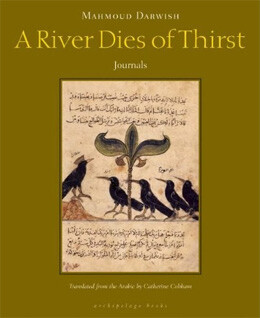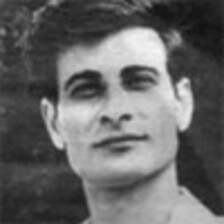The Electronic Intifada 5 October 2009

Given the significance of the olive tree as a symbol of Palestinian steadfastness, it would be easy to misinterpret the progression from Leaves of Olives (1964) to Almond blossoms and beyond, first published in Arabic in 2005 and newly translated by Mohammad Shaheen, as a predictable voyage inwards, away from commitment. Admittedly the former features poems of patriotism and resistance whereas such themes are conspicuously absent from the latter. But the poem “To Describe an Almond Blossom,” one of 30 short lyrics that comprise the first half of the book, serves as a subtle warning against such reductionism:
If a writer were to compose a successful piece
describing the almond blossom, the fog would rise
from the hills, and people, all the people, would say:
This is it.
These are the words of our national anthem.
Darwish, the national poet of a non-existent nation, the love poet whose beloved is both a woman and a country, saw metaphor as the essence both of poetry and of his everyday life. Such a vision dissolves secure perceptions of self, form, language and “things-in-themselves.”
These concerns give rise to what Shaheen describes as Darwish’s “oscillat[ion] … between the national and the human.” In the four poems of the “Exile” cycle that constitute the second half of the volume, this becomes a complex counterpoint between the personal and the political, the poetic and the poetological (poetry about poetry), the reflective and the polemical, the real and the surreal. These shifts are rapid but graceful, a grace that is well captured by Shaheen’s translations.
The fourth of these poems, significantly entitled “Counterpoint / (For Edward W. Said),” has already been widely disseminated in other translations. The dialogic structure of so many of Darwish’s poems, in which personal pronouns argue among themselves before blending into one another, here becomes more concrete: a conversation with Said, that other great cultural icon of the Palestinians. Said died five years before Darwish, and in the poem his voice often becomes Darwish’s: “I am he.” He offers a message with just as little comfort to the monolithic nationalist:
The East is not entirely East,
and the West not entirely West,
because identity is multiple
The final lines bid farewell to Said, but also, unexpectedly, “to the poetry of pain.”

If Almond blossoms and beyond is a carefully, almost symmetrically structured collection, A River Dies of Thirst comes across at first sight as a jumble, consisting as it does of more than 120 short poems, prose pieces and aphorisms. Unfortunately the translator has seen fit to avoid any editorial apparatus, hence the meaning of the book’s subtitle “journals” is obscure.
Immersion in the text quickly dispels the fear that these are mere jottings, published by the dying poet with the knowledge that he had no time left to work them into masterpieces. Instead, there is a sense of Mozartian buoyancy, a summation written at that “light-hearted stage of life we call maturity” (“We arrived too late”) by “a poet who does not like stopping at ruins, unless the poem demands it” (“Prickly pear”) and who believes that “one of the meanings of clouds” is “ ‘Thanks be to lightness!’” (“Italian autumn”).
Of course the political Darwish is here also, several pieces reflecting on Israel’s 2006 onslaught on Lebanon, and one longer poem, “Iraq’s night is long,” recalling the declamatory passion that made his reputation 40 years earlier.
Once again the nationalist will feel affronted, as Darwish’s love for Palestine was matched by his impatience with the vanity of Palestinian politics. He was devastated by Hamas’ electoral victory in 2006 but also by the West’s refusal to accept it, and above all by the ensuing Palestinian infighting. In exasperation he asks, “What do we need the narcissus for, since we are Palestinians?” (“From now on you are somebody else”). The Palestinians will become a people, he concludes, “when a writer can look up at the stars without saying: ‘our country is loftier and more beautiful!’ / … when the morality police protect a prostitute from being beaten up in the streets. / … when the Palestinian only remembers his flag on the football pitch, … and on the day of the Nakba” (“If we want to”). That he thus excepts the Palestinian catastrophe of 1948, however, leaves no doubt concerning his loyalties.
At the center of A River Dies of Thirst is a series of exquisite love poems into which, perhaps more delicately than ever, Darwish again winds questions of identity, sexuality, language and metaphor:
Lose one or two of your stars so I can believe
you are a woman of flesh and blood
and not music crushing me like a hazelnut underfoot
Be a little diminished, and break free from your metaphor
so that I can hold every part of you
except the part I have released into the air
(“Lose one of your stars”)
“All beautiful poetry,” writes Darwish, “is an act of resistance” (“The essence of poetry”). At a time when the US unconditionally backs Israel’s war against the Palestinians, and when everyone agrees that books are on their way out, these two beautifully produced books from independent American publishers are real acts of resistance.
Raymond Deane is a composer and political activist (www.raymonddeane.com).
Related Links





